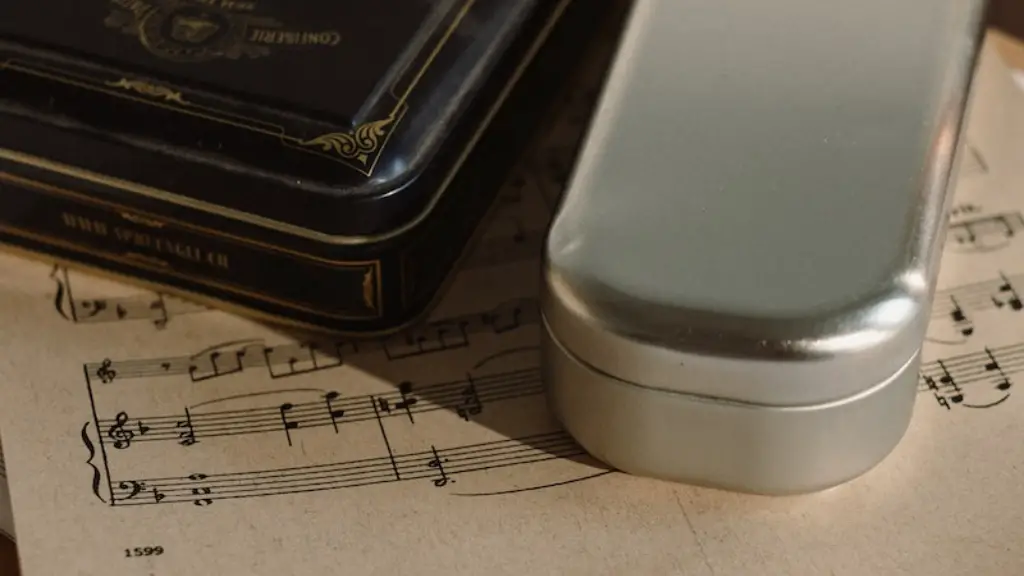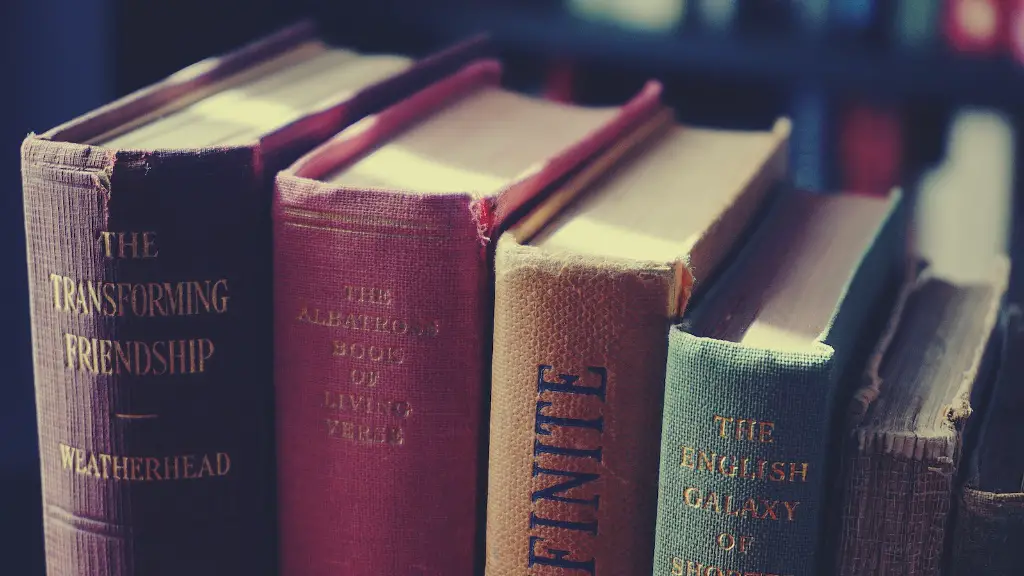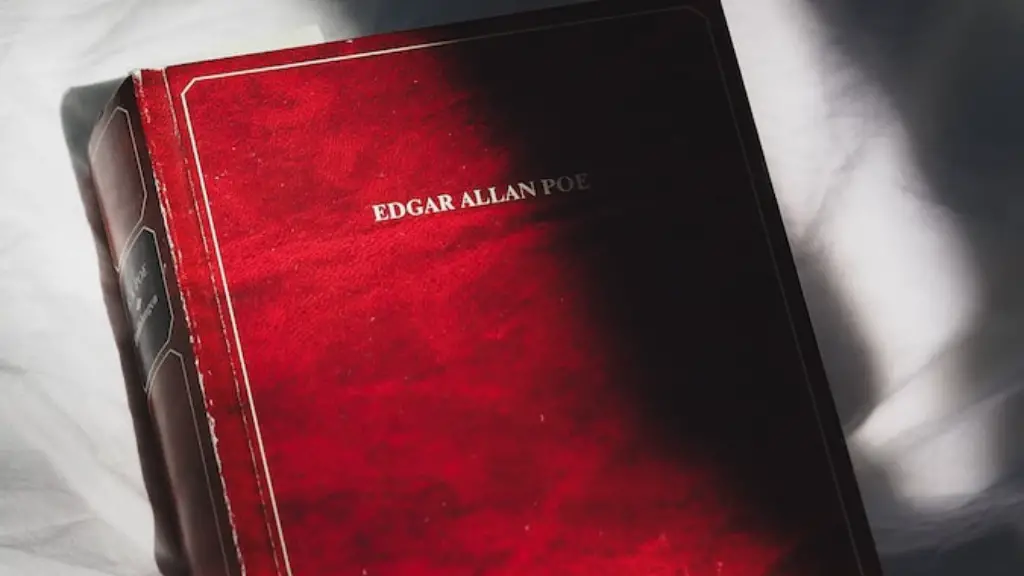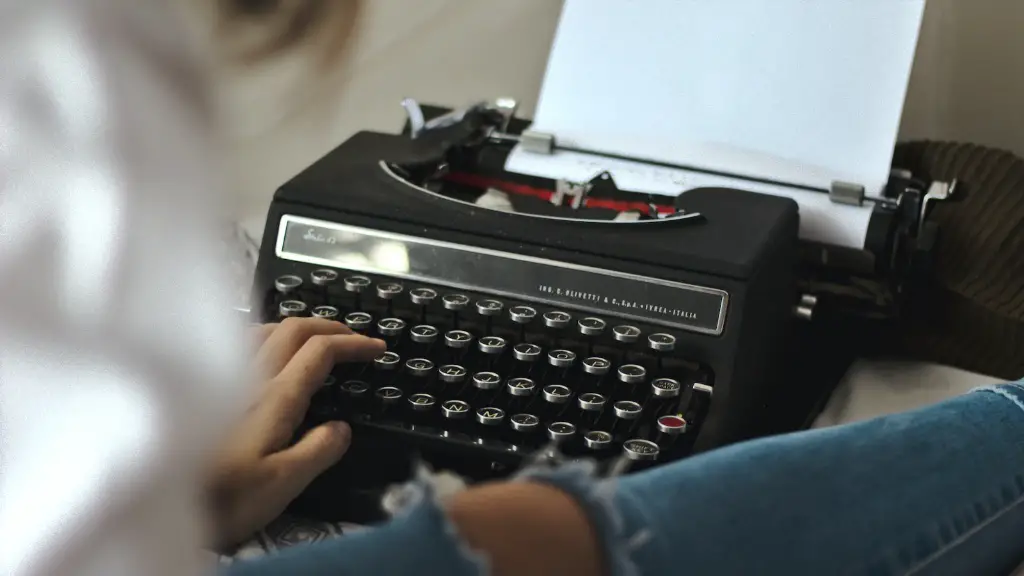Poetry has been around for centuries, and it continues to be as prevalent in our lives today as it ever was. From rap battles and slam poetry, to the written word in sonnets and epics, many can agree that poetry has shaped and deeply profounded our understanding of the world. But is poetry anything beyond the written word? Is poetry an umbrella term that can be applied to anything and everything?
Some may argue that poetry is the abstract expression of emotions and ideas, given further depth and complexity through the blending of words and cadence. While this may be one interpretation of poetry, it can also be argued that any form of self expression, whether verbal, visual, or kinetic, can be considered poetic. Philosopher and lecturer, Noam Chomsky evidenced that even something as seemingly unpoetic, such as mathematics has its own beauty that can be appreciated in a poetic way. He stated, “Mathematical discoveries, like any other artistic or scientific discoveries, are such that you don’t know in advance what’s going to happen… You have an intuition about what the ‘shape’ of the discovery should be, but the details are something very much of an adventure and exploration.”
Contemporary proponents of poetic exploration also seek to expand the concept of what constitutes poetry by considering a broader range of activities. Poetry has long been associated with the written and spoken word, but it is also expressed in various ways. These include musical pieces, visual art, and even everyday movements such as dancing and gardening. For example, a scenic cityscape or a quiet garden could be seen as poetic. Not only do these activities involve the emotions, but they also contain an element of design and creativity to them. Dance, which is one of the most physical forms of expression, can be seen as a poetic activity that reaches beyond verbal expression; a story composed not with words, but with physical motion.
One could also claim that poetry is more than an expression; it’s a feeling. Think about it. When you pick up a book of classic poetry, does the writing resonate with you in a special way or make you feel nostalgic for something? That is because poetry can evoke deep emotion, be it joy or sorrow. With the right combination of words, a poet can create an intense experience that is far greater than the words on the page.
Ultimately, the term ‘poetry’ is subjective; everyone has their own interpretation. It is this concept of interpretation that separates poetry from prose and allows each individual to explore it in new and creative ways. Some see poetry as a creative game of words, while others view it as a form of emotional expression. Each interpretation gives insight into the subjective nature of poetry and offers a unique perspective of the world.
Musical Poetry
Many people have found poetic expression in music. Songs are often considered poetic due to their blending of melody, rhythm, and meter, as well as their ability to capture the emotion of a moment. Musical lyrics rely heavily upon language to evoke emotion and some musicians like Bob Dylan or Leonard Cohen are renowned for their mastery of conveying complex feelings and ideas through interesting wordplay. Those musical pieces with meaningful lyricism, often carry the same sort of beauty as a poem, which can be explored and appreciated.
Additionally, certain musical pieces have the ability to tap into larger psychological themes that are connected to the human experience. Of course, the lyrics have an important role to play in this but even the notes themselves can draw an emotional response from the listener. As a result, it can be argued that the entire composition can be viewed as an abstract form of poetry.
Furthermore, poetry can be seen in motions and movements, such as dancing. Poetic movements are often used to convey narratives and stories through graceful motions, combined with choreographed steps and gestures. This elevates dance to an art form, where each gesture is symbolic and speaks to a deeper meaning.
Visual Poetry
Visual poetry refers to artwork that is intended to be viewed as a poem. Visual poems vary greatly in form, from found objects arranged in creative ways to paintings and photography that evoke specific emotions. Visual art has the potential to capture moments in time and to capture the feeling of a certain place or thought. Visual poetry can evoke a certain mood or emotion, and it can be used to comment on contemporary society. As such, it can be considered a form of abstract poetry.
In a similar vein as visual poetry, philosophical poetry is a type of poetry that expresses philosophical ideas, often in abstract form. Philosophical poetry has been around since Ancient Greece and it allows poets to explore complex ideas and metaphysical concepts. Through metaphor and symbolic language, philosophical poetry can transport the reader to a different realm, while at the same time offering insights into the human psyche.
Theatre plays can also be seen as a form of poetic expression. Theatre allows the audience to gain an intimate understanding of human nature and provides an escape from reality. It can be used as a platform to discuss difficult topics or explore abstract concepts, such as emotions and morality. In this way, theatre can be seen as an imaginative playground for creative expression, making it a form of poetry in a broader sense.
Performing Poetry
The way in which a poem is delivered can make all the difference in how it is perceived. Poetry slams and open mic nights are examples of performing poetry in the form of spoken word. Through spoken word, poets can bring their words to life in a dynamic way, with the use of body language, volume, and rhythm. As with music and dance, spoken word has the power to move and engage an audience in a special way, making it an incredibly powerful tool to express and explore poetic ideas.
Additionally, the art of storytelling has been used in various cultures to not only entertain, but to educate and impart wisdom. Stories can explore concepts of morality, justice and even mortality. And, similar to theatre, stories help us to make sense of the complexities of life. Through story-telling, we are able to access new perspectives, as well as gain a better understanding of our own beliefs.
Recite Poetry
Chanting or reciting poetry has also been used for centuries as a way to connect with the divine or to invoke a sense of spirit. Historically, chanting has been used to open the gates of the mind and spirit, allowing for a deeper connection with one’s inner self and the world around them. Poetry chanting is a form of meditation, which can help the participant to connect with their higher self and to tap into their intuition.
Moreover, poetry chanting can help to release emotions and spark creativity. Poems can be composed with certain instructions in mind, such as speed, volume, or tone; each affecting the mood of the chant and impacting the experience. Through this method of expression, individuals can find clarity and inspiration, while also connecting to the present moment.
Other Forms of Poetry
Apart from the activities and forms of expression outlined above, poetry can also be found in the act of simply being. Poetry is a way of living and existing in the world, each individual’s experience being unique and special. In an article for The Guardian, writer Helen Lederer captures this concept, stating that “poetry can be found in moments of stillness and in the ever-flowing water of life as an ebb and flow of love and energy.”
Overall, the concept of poetry is subjective and remains open to interpretation. In its most basic form, poetry is a way of expressing emotion and ideas and making sense of the world as a whole. It is a form of creativity, with its own unique rules and guidelines, that allows individuals to explore, express, and appreciate the world in their own ways.




